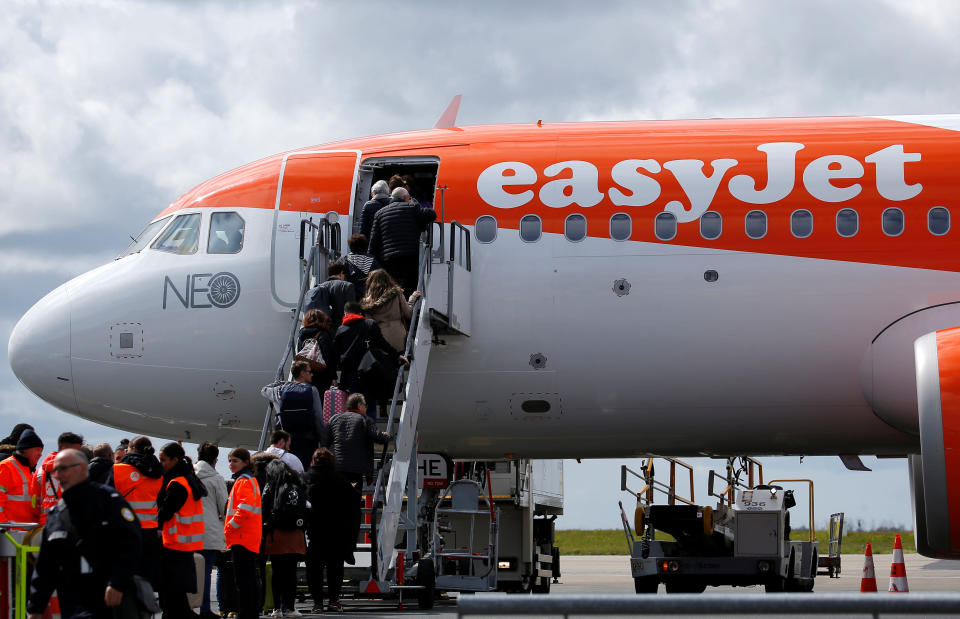EasyJet sends Brexit fare warning for second half of year

EasyJet (EZJ.L) said on Friday that fares in the second half of the year would be “slightly down” as a result of Brexit-related market uncertainty and a wider economic slowdown in Europe.
Though the low-cost airline said only last month that it expected fares to increase, EasyJet noted that its overall financial outlook remained unchanged and that its full-year results would be in line with market expectations.
The warning came after it reported an expected £275m pre-tax loss for the first half of the year. This compares to a headline pre-tax loss of just £18m a year ago.
Even though passenger numbers increased by more than 13%, EasyJet blamed fuel price increases, the impact of foreign exchange, increased costs, and the December Gatwick drone incident, which it said cost the airline £10m, for the loss.
In December, reported drone sightings resulted in a 36-hour shutdown of London’s Gatwick airport, EasyJet’s largest base.
But revenue increased by 7.3% to £2.3bn, mainly due to capacity growth, from £2.2bn in the first half of 2018.
EasyJet’s warning about fares in the second half of the year comes even during a period that includes the typically busy Easter break, which fell later this year.
Pointing to “the ongoing negative impact of Brexit-related market uncertainty as well as a wider macroeconomic slowdown in Europe,” EasyJet noted that its cost per seat — excluding fuel-related costs — would actually go down in the second half of the year.
EasyJet CEO Johan Lundgren told the BBC that these factors meant the airline was facing a “different environment this year than what we saw last year.”
“It's not so much that there isn't any demand out there, but it's definitely a tougher trading environment, which has an effect on the pricing,” Lundgren said.

 Yahoo Finance
Yahoo Finance 
